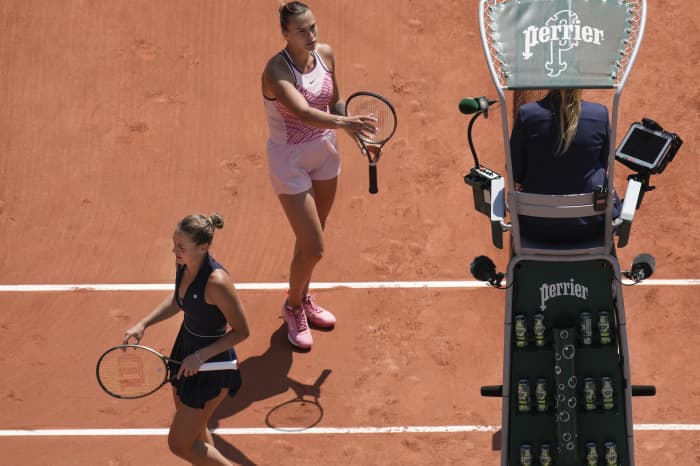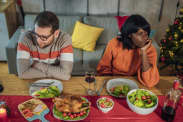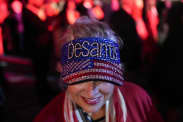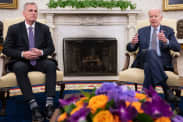PARIS (AP) — Unable to sleep the night before her first-round match at the French Open against Aryna Sabalenka of Belarus, the Grand Slam tournament’s No. 2 seed, Marta Kostyuk of Ukraine checked her phone at 5 a.m. Sunday and saw disturbing news back home in Kyiv.
At least one person was killed when the capital of Kostyuk’s country was subjected to the largest drone attack by Russia since the start of its war, launched with an invasion assisted by Belarus in February 2022.
Background: Russia signs deal to deploy tactical nuclear weapons in Belarus
From the archives (October 2022): Ukraine on watch for Russian attack via Belarus aimed at disruption of Ukrainian military supply lines
Also see (December 2021): Putin and Lukashenka schedule joint Russia-Belarus war games in new year
“It’s something I cannot describe, probably. I try to put my emotions aside any time I go out on court. I think I’m better than before, and I don’t think it affects me as much on a daily basis, but yeah, it’s just — I don’t know,” Kostyuk said, shaking her head. “There is not much to say, really. It’s just part of my life.”
That, then, is why Kostyuk has decided she will not exchange the usual postmatch pleasantries with opponents from Russia or Belarus. And that is why she avoided a handshake — avoided any eye contact, even — after losing to Australian Open champion Sabalenka 6-3, 6-2 on Day 1 at Roland Garros.
What surprised the 20-year-old, 39th-ranked Kostyuk on Sunday was the reaction she received from the spectators in Court Philippe Chatrier: They loudly booed and derisively whistled at her as she walked directly over to acknowledge the chair umpire instead of congratulating the winner after the lopsided result. The negative response grew louder as she gathered her belongings and walked off the court toward the locker room.
“I have to say,” Kostyuk said, “I didn’t expect it. … People should be, honestly, embarrassed.”
From the archives (March 2023): Wimbledon will allow Russians to play this year — if they don’t support Russia’s invasion of Ukraine
Also see (April 2022): Wimbledon to bar players from Russia and Belarus this summer
Kostyuk is based now in Monaco, and her mother and sister are there, too, but her father and grandfather have remained in Kyiv. Perhaps the fans on hand at the clay-court event’s main stadium were unaware of the backstory and figured Kostyuk simply failed to follow usual tennis etiquette.
“ ‘I don’t know what other players are afraid of [in speaking out against Russia’s war in Ukraine]. I go back to Ukraine, where I can die any second from drones or missiles or whatever it is.’”
— Marta Kostyuk of UkraineInitially, Sabalenka — who had approached the net as if anticipating some sort of exchange with Kostyuk — thought the noise was directed at her.
“At first, I thought they were booing me,” Sabalenka said. “I was a little confused, and I was, like, ‘OK, what should I do?’ “
Sabalenka tried to ask the chair umpire what was going on. She looked up at her entourage in the stands, too. Then she realized that while she is aware Kostyuk and other Ukrainian tennis players have been declining to greet opponents from Russia or Belarus after a match, the spectators might not have known — and so responded in a way Sabalenka didn’t think was deserved.
“They saw it,” she surmised, “as disrespect [for] me.”
All in all, if the tennis itself was not particularly memorable, the whole scene, including the lack of the customary prematch photo of the players following the coin toss, became the most noteworthy development on Day 1 in Paris.
The highest-seeded player to go home was No. 7 Maria Sakkari, who lost 7-6 (5), 7-5 to 42nd-ranked Karolina Muchova in what wasn’t necessarily that momentous of an upset. Both have been major semifinalists, and Muchova has won her past four Slam matches against players ranked in the top 10 — including beating Sakkari at the French Open last year. Also out: No. 21 Magda Linette, a semifinalist at the Australian Open, who lost 6-3, 1-6, 6-3 to 2021 U.S. Open runner-up Leylah Fernandez, and No. 29 Zhang Shuai.
The first seeded men to bow out were No. 20 Dan Evans and No. 30 Ben Shelton, an Australian Open quarterfinalist and 2022 NCAA champion from Florida making his French Open debut. No. 11 Karen Khachanov, a semifinalist at the past two majors, came all the way back after dropping the opening two sets to beat Constant Lestienne, a French player once banned for gambling, by a 3-6, 1-6, 6-2, 6-1, 6-3 score in front of a boisterous crowd at Court Suzanne Lenglen. Two-time Slam finalist Stefanos Tsitsipas came within a point of being forced to a fifth set, too, but got past Jiri Vesely 7-5, 6-3, 4-6, 7-6 (7). No. 24 Sebastian Korda, who missed three months after hurting his wrist at the Australian Open, was a straight-set winner in an all-American matchup against Mackenzie McDonald, the last player to face — and beat — Rafael Nadal. The 14-time French Open champion has been sidelined with a hip injury since that match in January.
Sabalenka called Sunday “emotionally tough” — because of mundane, tennis-related reasons, such as the nerves that come with any first-round match, but more significantly because of the unusual circumstances involving the war.
“You’re playing against [a] Ukrainian and you never know what’s going to happen. You never know how people will — will they support you or not?” explained Sabalenka, who went down an early break and trailed 3-2 before reeling off six consecutive games with powerful first-strike hitting. “I was worried, like, people will be against me, and I don’t like to play when people [are] so much against me.”
“ ‘Nobody in this world, Russian athletes or Belarusian athletes, support the war. Nobody. How can we support the war? Nobody — normal people — will never support it. Why [do] we have to go loud and say [these] things? This is like: “One plus one [is] two.” Of course we don’t support war.’ ”
— Aryna Sabalenka of BelarusA journalist from Ukraine asked Sabalenka what her message to the world is with regard to the war, particularly in this context: She can overtake Iga Swiatek at No. 1 in the rankings based on results over the next two weeks and, therefore, serves as a role model.
“Nobody in this world, Russian athletes or Belarusian athletes, support the war. Nobody. How can we support the war? Nobody — normal people — will never support it. Why [do] we have to go loud and say [these] things? This is like: ‘One plus one [is] two.’ Of course we don’t support war,” Sabalenka said. “If it could affect anyhow the war, if it could like stop it, we would do it. But, unfortunately, it’s not in our hands.”
When a portion of those comments was read to Kostyuk by a reporter, she responded in a calm, measured tone that she doesn’t get why Sabalenka does not come out and say that “she personally doesn’t support this war.”
Kostyuk also rejected the notion that players from Russia or Belarus could be in a tough spot upon returning to those countries if they were to speak out about what is happening in Ukraine.
“I don’t know why it’s a difficult situation,” Kostyuk said. “I don’t know what other players are afraid of,” she said. “I go back to Ukraine, where I can die any second from drones or missiles or whatever it is.”






